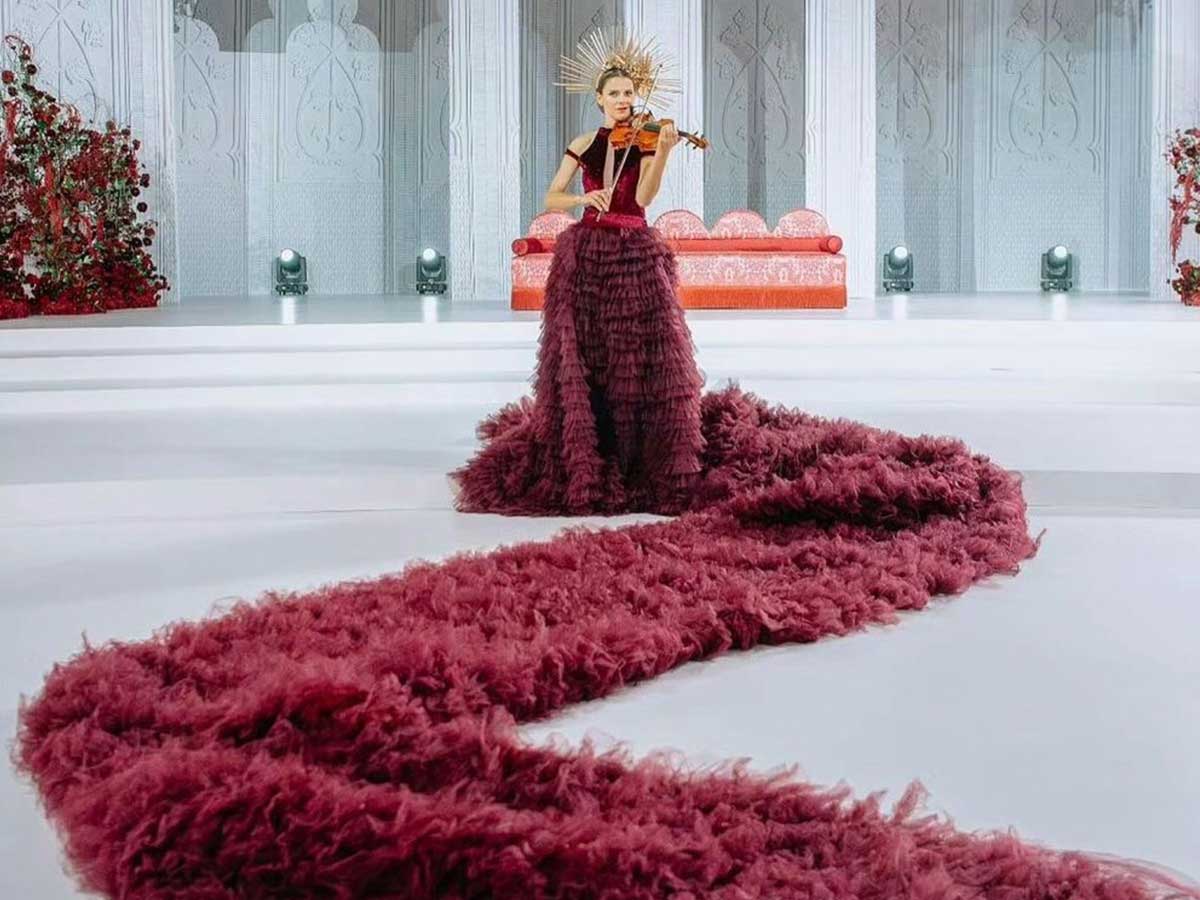卡塔里文化中的婚姻是一个深厚的多方面机构,使传统交织在一起, 家庭价值观, 和社会习俗. 反映阿拉伯半岛的更广泛的文化遗产, 卡塔里婚姻实践展示了古代贝都因人传统和现代影响的融合. 本文探讨了卡塔里文化中婚姻的关键方面, 包括传统习俗, 家庭的角色, 婚礼, 以及当代卡塔尔婚姻的不断发展的动力.
传统习俗和实践
卡塔里文化中的婚姻经常被视为神圣的纽带, 在两个家庭的联合与夫妻的联盟一样重要的地方. 传统上, 婚姻由家庭安排, 父母在为孩子选择合适的伴侣时扮演着关键的角色. 这种做法源于维持家庭血统的愿望, 保留文化遗产, 并确保社会稳定.
嫁妆 (或者 马尔) 是卡塔尔婚姻的重要组成部分. 新郎通常需要为新娘的家人提供嫁妆, 象征他的承诺和责任. 嫁妆的量可能会取决于各种因素, 包括社会地位和家庭传统. 这是对家庭和社区中新娘价值的尊重和承认的姿态.
在许多情况下, 通过家庭网络或亲密朋友发生对接, 目的是找到与社会保持一致的合适匹配, 经济的, 和文化期望. 安排的婚姻仍然很普遍, 现代影响导致了越来越多的爱情婚姻, 个人根据个人喜好和情感联系选择伴侣的地方.
家庭的角色
家庭在卡塔尔婚姻中扮演着核心角色, 随着新娘和新郎的家人都大量参与了这一过程. 结婚前, 这些家庭经常进行讨论以确保兼容性并解决任何潜在问题. 这种合作凸显了家庭团结的重要性和保持牢固的家庭纽带的承诺.
一旦达成了一致, 两个家庭都参加 订婚 仪式, 交换礼物的地方, 这对夫妇正式订婚. 参与可以持续几个月甚至几年, 允许家庭计划婚礼,并让这对夫妇变得更好.
在卡塔尔文化中, 家庭很常见举办婚礼的庆祝活动. 这些聚会, 通常称为 指甲花之夜, 是重大的婚前活动,家人和朋友聚在一起庆祝即将到来的工会. 指甲花被应用于新娘的手和脚以复杂的设计, 象征婚姻中的喜悦和繁荣.
婚礼
卡塔尔举行的婚礼是一件大事, 通常涉及精心准备和大量金融投资. 传统的卡塔里婚礼通常在豪华场所举行, 装饰有丰富的装饰,反映了这对夫妇的社会地位和家庭背景. 婚礼的规模通常会根据个人喜好和家庭传统而变化.
婚礼当天通常从新娘和新郎的单独聚会开始. 新娘经常被美容疗法宠爱, 包括发型, 化妆品, 和传统服装. 卡塔里新娘的传统婚纱通常由精美的点缀 长袍 或定制的礼服,反映出他们的个人风格.
新郎, 另一方面, 穿着 托贝 (长长的白色长袍) 并可能穿 嗓音 (头巾) 或者 琼脂 (用来固定头巾的绳索). 服装通常是豪华配件的补充, 例如黄金珠宝.
在婚礼期间, 这对夫妇参加了 尼卡, 伊斯兰婚姻合同正式化了他们的工会. 仪式通常由 阿訇 (伊斯兰牧师), 谁从古兰经背诵经文,并强调了爱的重要性, 同情, 和婚姻中的相互尊重. 婚姻合同的签署由家人见证, 象征社区对工会的认可和支持.
一旦Nikah完成, 这对夫妇可能会分享第一舞, 庆祝活动继续以豪华的宴会为特色. 客人经常用礼物给这对夫妇洗澡, 包括钱, 珠宝, 和家居用品, 作为善意的姿态,并共同支持他们的新生活.
不断发展的婚姻动力
传统婚姻习俗在卡塔里文化中继续发挥重要作用, 当代影响导致婚姻实践逐渐发展. 年轻一代越来越多地接受伴侣选择的个人选择, 导致爱情婚姻的崛起. 这种转变反映了卡塔里社会中对个人主义和自治的更广泛趋势.
教育和职业愿望在不断变化的婚姻动态中也起着至关重要的作用. 许多年轻的卡塔尔人在结婚之前优先考虑他们的教育和专业发展. 这种关注个人成长通常会导致以后的婚姻, 由于个人在承诺终身伙伴关系之前寻求建立稳定和独立性.
此外, 关于婚姻中性别角色的讨论正在发展. 传统角色仍然持续, 人们对家庭中共同责任的重要性越来越认识到. 许多夫妇现在拥抱更多的平等关系, 两个合作伙伴都为决策做出贡献, 育儿, 和财务责任.
挑战和考虑因素
尽管围绕婚姻具有丰富的文化传统, 卡塔里社会中存在各种挑战. 婚礼的成本上升会给家庭带来巨大的财务负担, 带领一些人推迟婚姻或选择更简单的仪式. 此外, 与婚姻有关的社会压力, 包括有关嫁妆和家庭参与的期望, 可以为寻求浏览婚姻过程的个人带来压力.
离婚率, 尽管与全球平均值相比仍然相对较低, 近年来一直在增加. 导致这种趋势的因素包括改变社会动态, 婚姻内的不同期望, 以及全球化对文化价值观的影响. 政府和社区组织正在努力促进健康的关系,并为面对挑战的夫妇提供资源.
结论
卡塔里文化中的婚姻是一个深刻而珍贵的机构,体现了家庭的价值观, 传统, 和社区. 而围绕婚姻的习俗和习俗不断发展, 该机构的本质在尊重上仍然深深地扎根, 承诺, 和爱. 了解婚姻在卡塔尔文化中的意义为这个迷人的国家的更广泛的文化景观提供了宝贵的见解.
随着卡塔尔继续现代化并适应全球影响, 传统与当代实践之间的平衡可能会影响该国婚姻的未来. 对于那些寻求了解卡塔里文化的人, 欣赏婚姻的复杂性和细微差别是必不可少的, 因为它反映了社会价值和文化遗产的丰富挂毯,这些遗产定义了这个独特的社会.

卡塔尔的传统和文化令人着迷地融合了古代贝都因人的遗产, 伊斯兰教信仰, 充满活力的社区精神吸引您亲自探索和体验.
版权 2024 © 卡塔尔文化版权所有